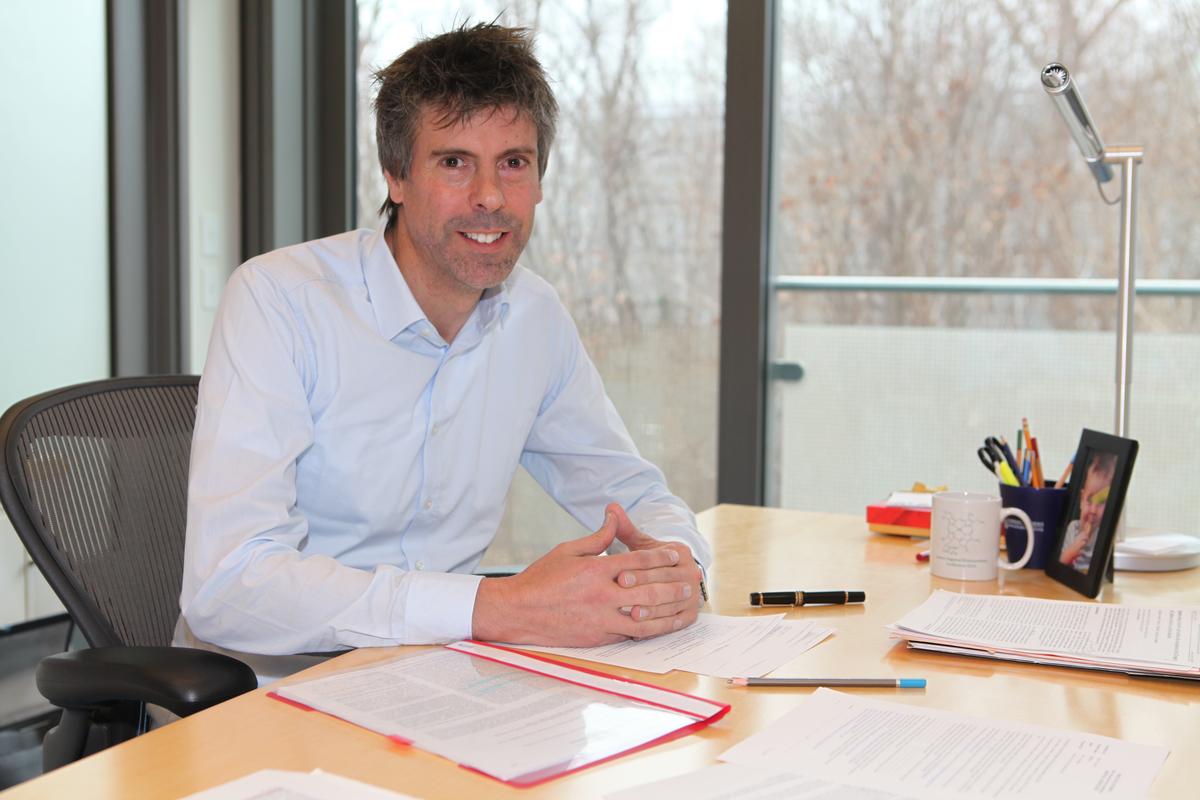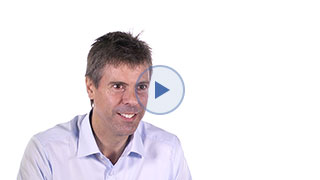Exploring the Infinite
A lifelong curiosity began when Greg Scholes, a professor of chemistry at Princeton, received a chemistry set as a kid. Back then, sets contained things that were “actually cool,” less encumbered by strict safety concerns.
Scholes grew up in Australia and entered the University of Melbourne as an undergraduate intending to study organic chemistry. In his third year, he took a physical chemistry lab that would alter his course.
“I thought, ‘Oh this is interesting, you get to solve a kind of puzzle like a detective story instead of memorizing a 20 step reaction,’” Scholes said. He’s been successfully solving puzzles in physical chemistry ever since.

In July of last year, Scholes joined the faculty at the Department of Chemistry at Princeton University as the newest senior hire. His lab is one of the leading groups studying how nature collects light to power fundamental processes like photosynthesis, using both experimental and theoretical techniques.
“There have been a number of discoveries about how light harvesting works in nature that couldn’t have been guessed with pen and paper,” Scholes said. By gaining a deeper understanding of how nature captures light and transfers energy researchers may be able to design more efficient light harvesting devices.
In an article published in the journal Nature in 2010, Scholes and coworkers used ultrafast lasers to probe energy transfer pathways in photosynthetic marine algae. The algae possess antenna proteins that absorb light and pass along the energy to a reaction center. Significantly, his research team found evidence of quantum coherence in a complex biological system at room temperature, a phenomenon related to the sharing of electronic excitation between distant molecules that may account for the algae’s efficient light harvesting.
Beyond photosynthetic algae, the Scholes lab has investigated a wide range of systems, from semi-conductor nanocrystals to conducting polymers, resulting in more than 200 publications in peer-reviewed journals.
“What’s unique about Greg is that he’s at the interface of understanding fundamental mechanisms and doing experiments to prove them,” said Rienk van Grondelle, a professor of biophysics at the VU University Amsterdam and longtime colleague. “It’s really one of his strengths,” he said.
It was during his graduate and postdoctoral studies that Scholes started developing expertise in multiple disciplines. After receiving a B.Sc. with Honors in chemistry, Scholes remained at the University of Melbourne to complete his PhD in the laboratory of Ken Ghiggino, whose lab specialized in ultrafast laser spectroscopy. There, he learned how to wield these laser techniques to glean information about energy transfer in photochemical reactions.
Scholes then went on to two postdoctoral fellowships that took him across the globe, first at the Imperial College London with David Phillips then at the University of California, Berkeley with Graham Fleming.
He recounted the first time he read about Fleming’s research—dynamic work that drew on chemistry, spectroscopy and biophysics. He’d found a few papers in the library, before Google was a verb, and thought he couldn’t possibly understand the material—there was too much biology. “And of course it’s exactly what I do now,” he said.
On Fleming’s advice Scholes applied for a faculty position at the University of Toronto, where he started his independent career in 2000. Once he got the offer from Toronto, Fleming wouldn’t hear of him going anywhere else, even insisting that he cancel his remaining interviews, which he did. With its strong physical chemistry department, University of Toronto was an excellent place to do research, especially as a new professor, he said.
 Academic professors must manage research, but also graduate students and their development. It’s important to give students the space to try new and original ideas, Scholes said, but also to provide guidance to ensure progress is being made.
Academic professors must manage research, but also graduate students and their development. It’s important to give students the space to try new and original ideas, Scholes said, but also to provide guidance to ensure progress is being made.
The atmosphere in Scholes’ lab was really one of “infinite possibility,” said Vanessa Huxter, a former graduate student and assistant professor at the University of Arizona. “If you had a cool idea, you could try it, and you would find something interesting about it,” she said.
For his work, Scholes has received numerous accolades including the Raymond and Beverly Sackler Prize in Physical Sciences, the NSERC John C. Polanyi Award, and two visiting professorships, at the Beijing Institute of Technology and the University of Freiburg.
Scholes said his move to Princeton opens a lot of new doors, and he’s looking forward to great collaborations. Reflecting on his career choice, Scholes said he couldn’t imagine doing anything more fascinating. “There’s always an interesting problem to work out, that’s what I like,” he said, “there’s always puzzles to solve, sometimes impossible puzzles, which is even better.”
